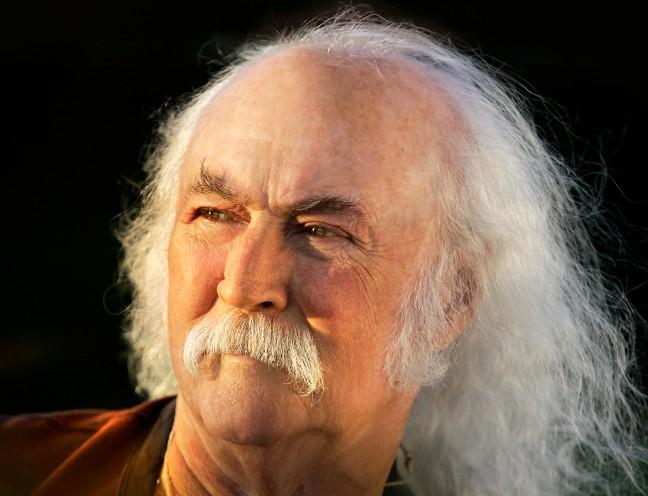Anyone who has used the fun-loving ending of “Suite: Judy Blue Eyes” as the soundtrack to a coastal convertible car trip or grew up on the soothing melody of “Helplessly Hoping” probably gave a sigh when hearing David Crosby’s new album, Croz. We get Crosby’s voice—the clear, time-weary whispers—but the music itself is sadly forgettable and disappointing.
Retrospection seems to be an expectation instilled in the modern albums of our favorite 60s and 70s legends, probably because those like Crosby know as well as we do that their days of unparalleled awesomeness are at an end. Or they’re in denial, which is easily just as possible in Crosby’s case. Croz is not disappointing because of the banal lyrics or the unoriginal music, but because there’s little passion left to give the songs the spice they need to surprise, inspire and move us.
Songs like “What’s Broken” are OK. The melancholy music syncs well with Crosby’s voice, but the lyrics of the chorus speak for themselves: “Who wants to see an abandoned soul…who wants to buy what’s broken?” No one. Maybe it was wrong of me to expect magic from the once-legendary singer, guitarist and songwriter who within numerous famous ensembles, created albums like So Far which in itself, assisted in creating a precedent for the folk rock genre. Croz is far from music history in the making; it warbles on homogeneously from track to track. The music starts to fade together. When it comes down to it: all of the songs have the same feel, the same rhythm.
Another element prevalent in the hopeful, modern spin-offs of old-time greats like this one seems to be the effort to incorporate, or at least fit in to the new age. Perhaps in Croz’s case, the problem is the effort to stay true to the old sound without realizing that an influx of modern elements is practically inevitable. The clarity of the instruments almost becomes a deterrent to the sound. Terse, jazzy guitar riffs come off as grossly unnecessary fillers. “The Clearing” is easily the leading track, but still, something feels off. It could be the pointless, highly-synthesized beats of the bridge that ruin it, turning an OK song into a commentary on how much this OK song actually sucks.
Some of the material is truly cringe-worthy. The song “Dangerous Night” risks being a pop song, or worse, a song about conquering your fears, not giving up in the frozen rain and finding someone to walk next to you in the orchards and the grain. Cringe away.
While listening to these songs, I put myself in the shoes of my baby-boomer parents—who own innumerable Crosby, Stills and Nash records—and wonder what it must be like to listen to the old greats trying to reignite the magic of passed days. It’s a little sad, and that sense of nostalgia and recollection can be felt through every song.
If you loved Crosby in his glory days, avoid this album. It’s depressing, slow and monotonous. Dust off the fine records of Crosby, Stills, Nash and Young. That’s where the real music is.
1.5 out of 5 stars


